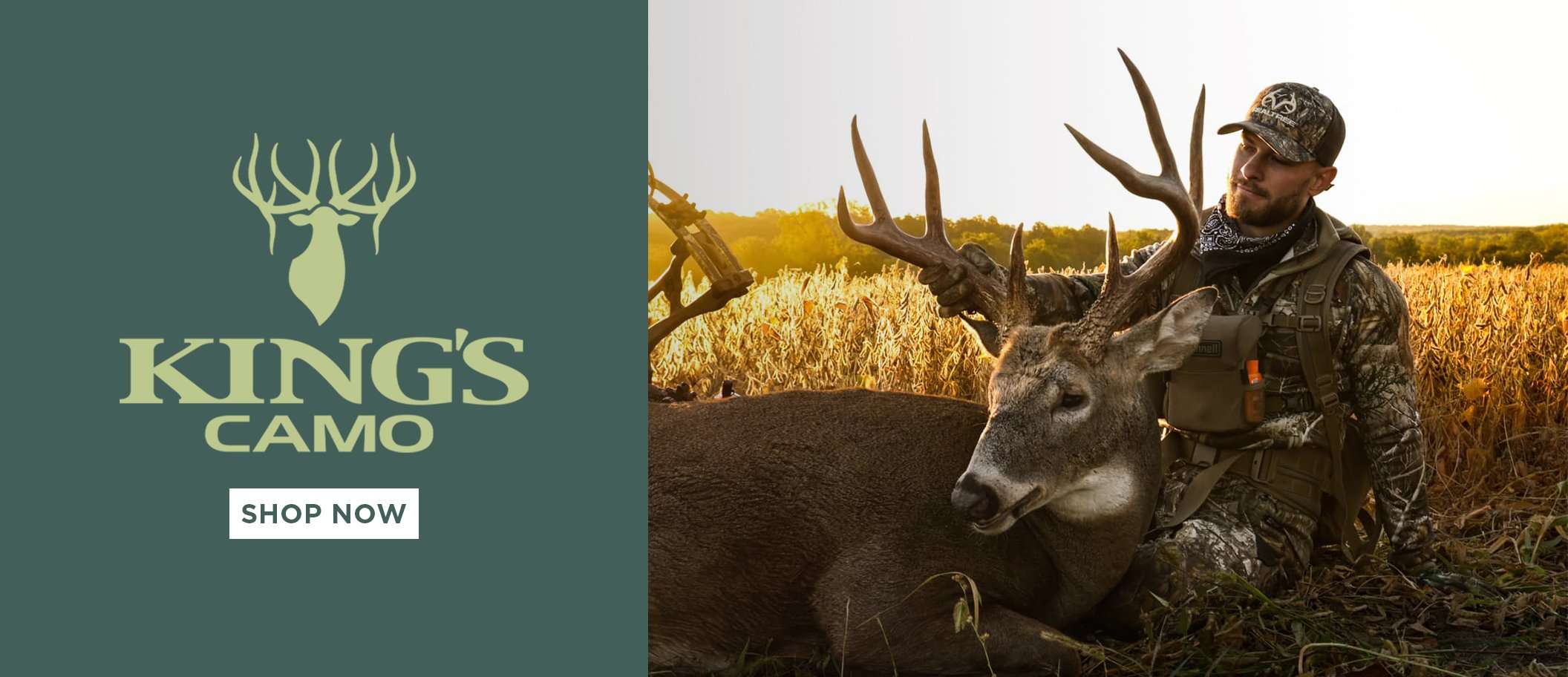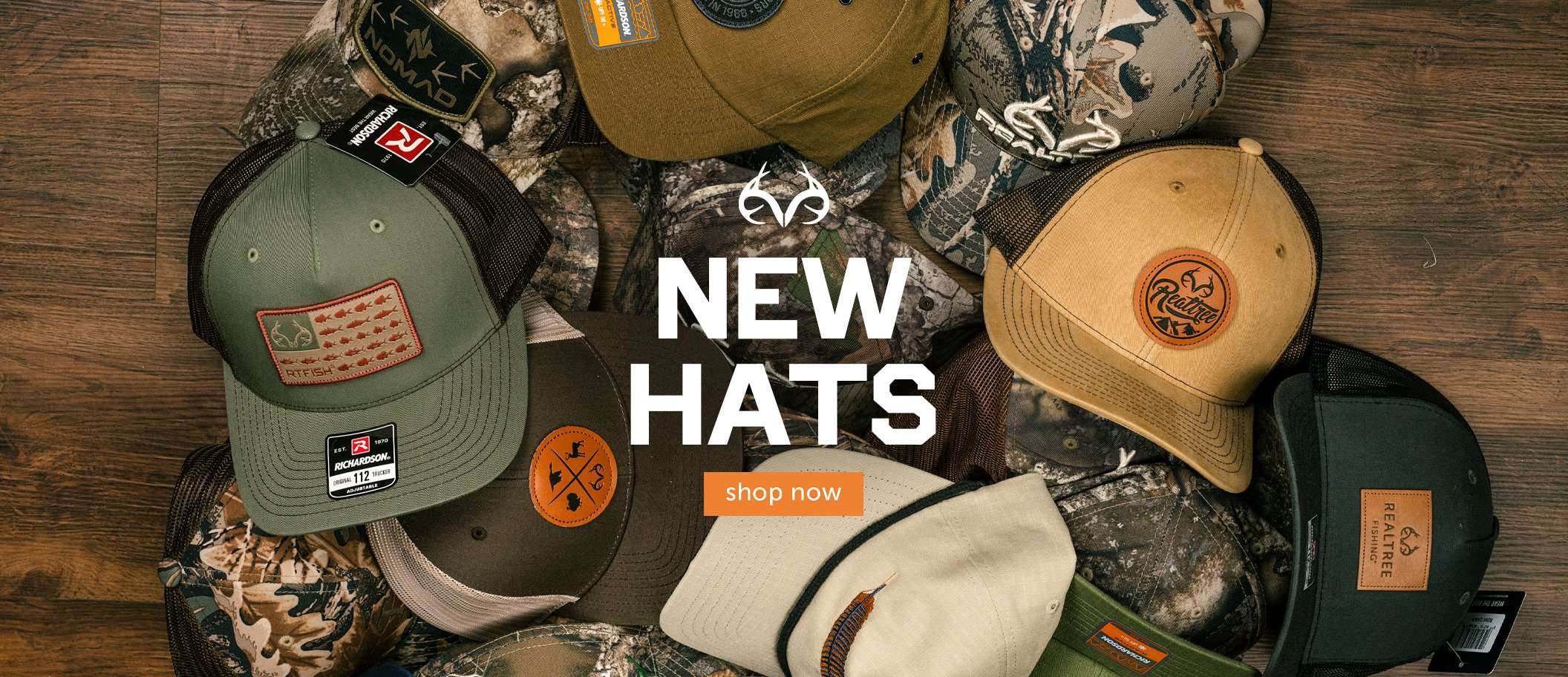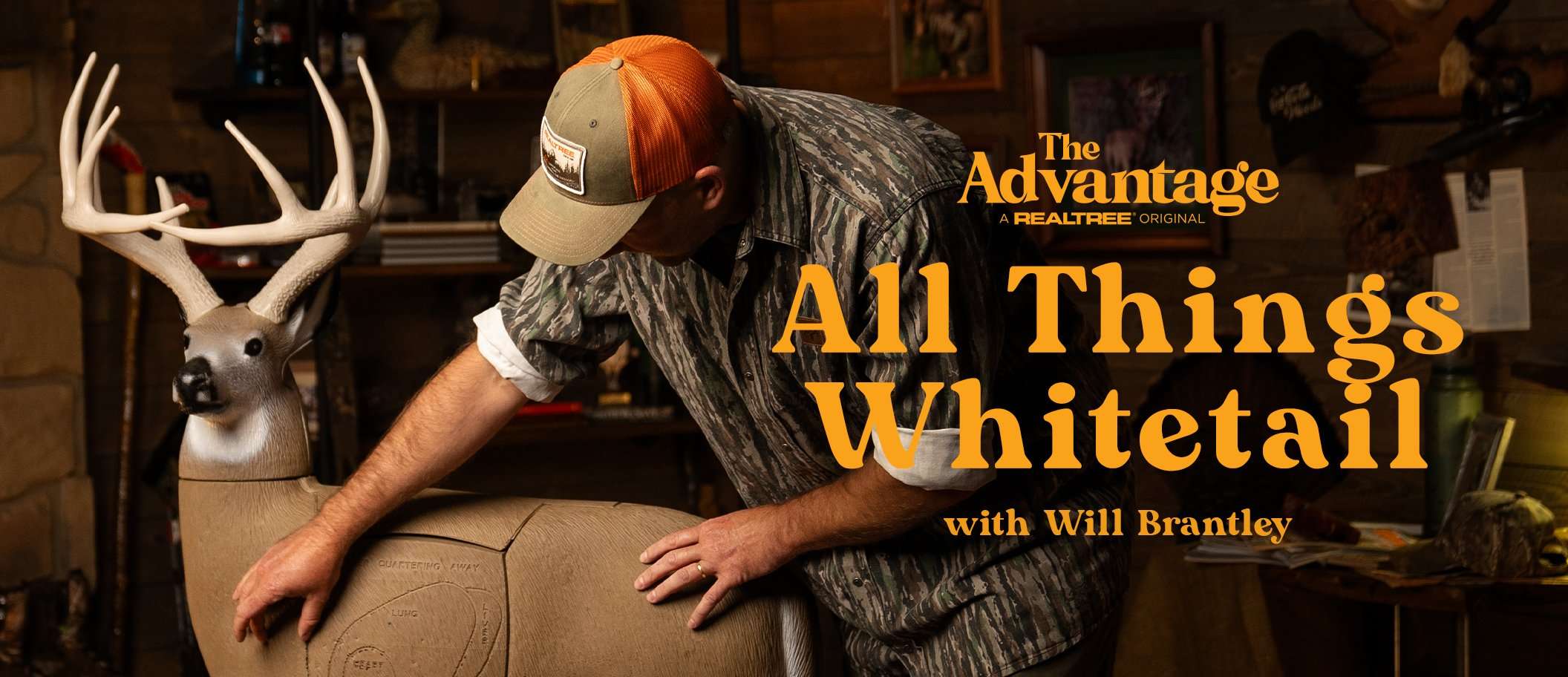If arrowing a fuzzy-antlered buck is on your bucket list, consider heading to one of these lesser-known stops
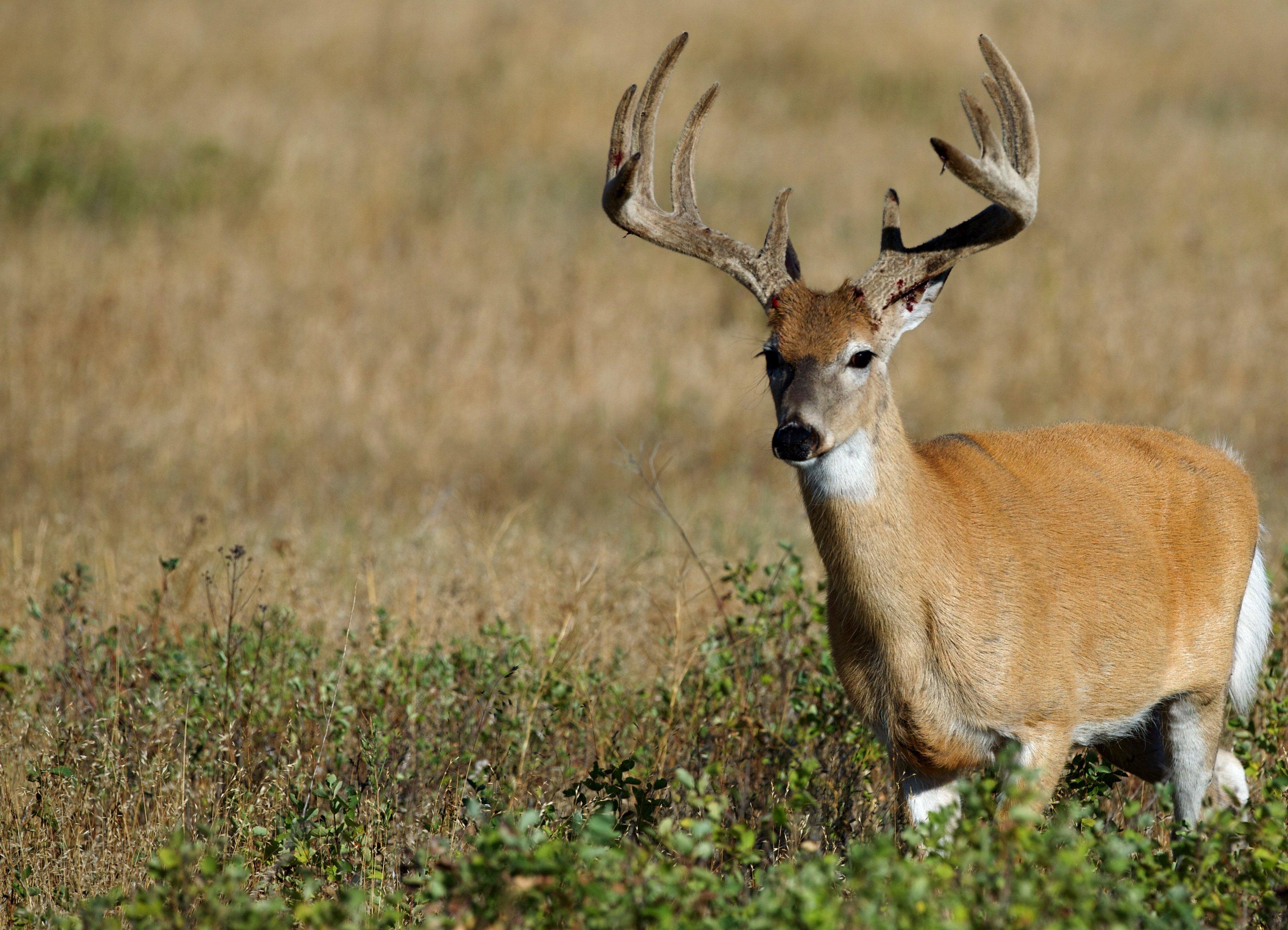
Not many states have hunting seasons open while bucks are in velvet, but those that do give hunters a neat opportunity to hunt predictable deer on late-summer feeding patterns. The antler velvet is a cool bonus. (Photo by Tom Rechner)
When it comes to hunting full-velvet whitetails, a few classic stops come to mind. Kentucky might be atop the list, and for good reason. More record-class velvet bucks are taken in the Bluegrass State than anywhere else (and you can read about a bunch of them on Realtree’s Rack Report). Other legendary stops for the early season include Nebraska, Montana, and the Dakotas. In parts of South Carolina, even rifle hunters can get a crack at a velvet whitetail.
But those aren’t the only places to consider. A couple of the states on this list have relatively new early archery seasons that offer a great chance at a velvet buck. The other state is a long-time stop for Team Realtree that still doesn’t get the attention that it should from whitetail hunters. Let’s have a look.
Wyoming
The Cowboy State issues a generous number of deer tags for its Region A — the most whitetail-dense area — through a drawing. Region A includes hunt areas 1-6. The region general tag is good for the rifle season, but you can purchase an archery stamp in order to begin hunting on September 1. If you don’t tag a velvet buck near the opener, return during the firearm season to chase rutting hard-antlered bucks.
DON’T MISS: Bill Jordan Inducted Into Legends of the Outdoors Hall of Fame
The application fee is $15. If you apply for the nonresident special deer license, you’ll pay $1,200 for the license but have higher draw odds. If you apply for the nonresident regular deer license and draw it, you’ll be set back a more reasonable $374. Youth hunters pay just $110. You’ll also need an archery license and a conservation stamp.
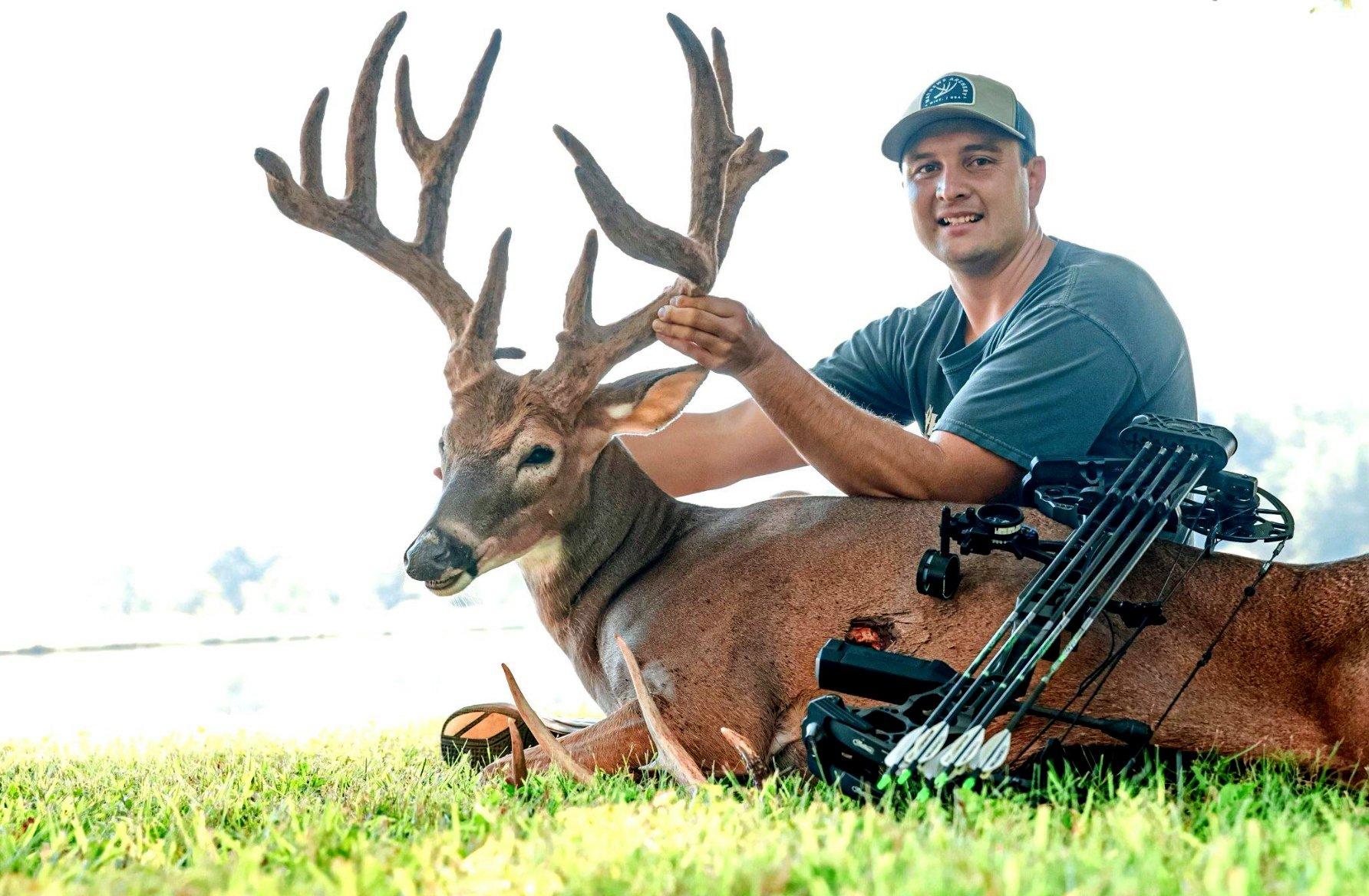
Sure, Kentucky is often the first state that comes up in velvet-buck discussions due to bucks like this one, but if you’re not the type to follow the crowd, one of the less-publicized destinations in this article might be a great fit for you. (Photo courtesy of Chandler Barnes)
Premier outfitters such as Seven J, in Sundance, operate in this region and can provide top-notch accommodations and hunting. You can expect to see plenty of deer and some really good bucks, too.
Northeast Wyoming is also a DIY-friendly region to hunt. You can lodge in Hulett or Sundance, otherwise you can camp on forest service lands. Speaking of forest service lands, there are thousands of acres making up the Black Hills National Forest in Region A. There are also some Walk-In Hunting Areas and BLM lands. Bring your portable treestand, and be sure to arrive a few days before the opener to pattern some bucks as they head from the ponderosa hills to meadows and hayfields.
You won’t likely encounter a world-class buck on this hunt, but the odds of taking a deer in the 120-140 range are outstanding. A 150-class buck is a top-shelf specimen for the area, though the Black Hills occasionally produce even larger animals.
Tennessee
The Volunteer State is the hub for more than just live music and night life. There, a special archery-only velvet season runs August 23-25 this year. It’s exclusive to private lands and select WMAs, but as early as it is, bucks will almost certainly be in velvet. Be sure to visit the Tennessee Wildlife Resources Agencies website and hit the WMA mapping tool to learn each WMA parcel’s regulations.
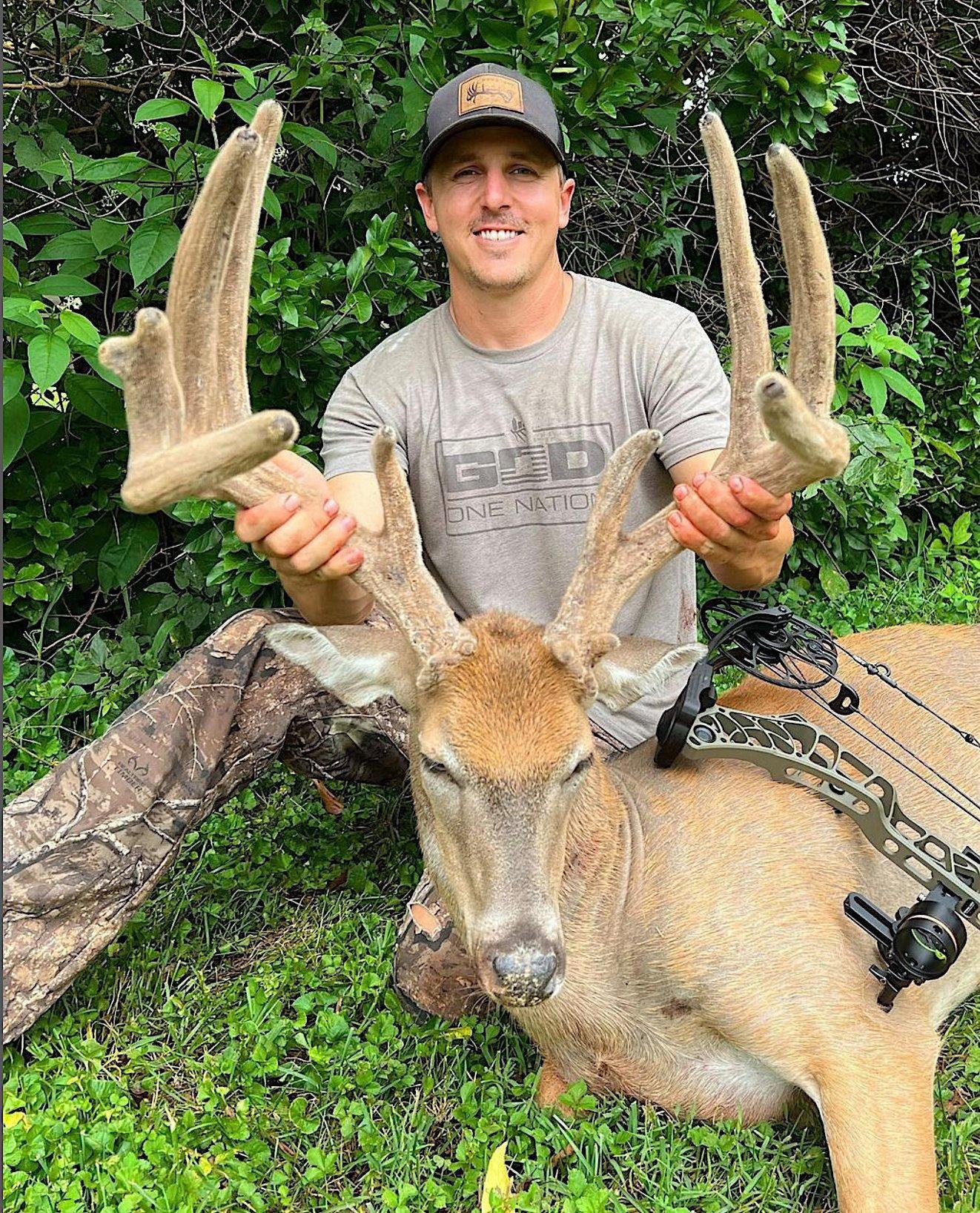
Realtree Pro Lee Ellis arrowed this giant velvet buck in Tennessee, where bowhunters are treated to a special three-day season in late August. (Photo courtesy of Lee Ellis)
While Tennessee isn’t the first state to come up in big-buck discussions, it has some big ones running around. The Boone & Crockett Club has 23 entries from Tennessee in the last 10 years, and those are just the Booners that hunters entered into the record book. You also might recall that Tennessee produced the Boone & Crockett world’s record, which was taken by Stephen Tucker in Sumner County several years ago. The monster scored 315 1/8 inches.
CHECK OUT OUR LATEST CAMO PATTERN: Realtree APX
As for nonresident fees, a 7-day All Game tag costs $214, while an annual All Game Hunting license runs $305. Nonresident youths ages 13-15 get a break with the $26 Junior All Game license. Hunting on WMAs will require a $24 WMA permit.
Hunting bucks on summer feeding patterns along ag fields or just away from them is the name of the game here. Oh, and don’t overlook soft mast such as apple and persimmon trees.
The downside is that you have a very short window — only three days — to get your velvet buck. Of course, you can hunt later during the normal archery season, but the bets for a velvet buck will be off by then. So, arrive early and get some scouting in so that you’re in the game on opening night. Or, hire an outfitter if this is a one-time bucket-list hunt for you.
Mississippi
Tennessee isn't the only southern state with a special early hunt designed to give hunters the opportunity to hunt velvet bucks. Mississippi also has a three-day early hunt, which will run September 13-15 this fall. Some bucks will have shed their velvet by that point in the fall, but this is a weekend hunt, so be on the lookout for an earlier season in the years to come. This bow-only hunt requires a special permit (these went on sale August 1 at all sales locations), and archers are limited to one legal buck — read the regulations for the definition of a legal buck. Harvest reporting and CWD sampling are mandatory.
According to an article on the Clarion Ledger’s website, the hunt was previously exclusive to private lands, but this fall it will also be allowed on authorized state, federal, and open public lands per the Department’s website.
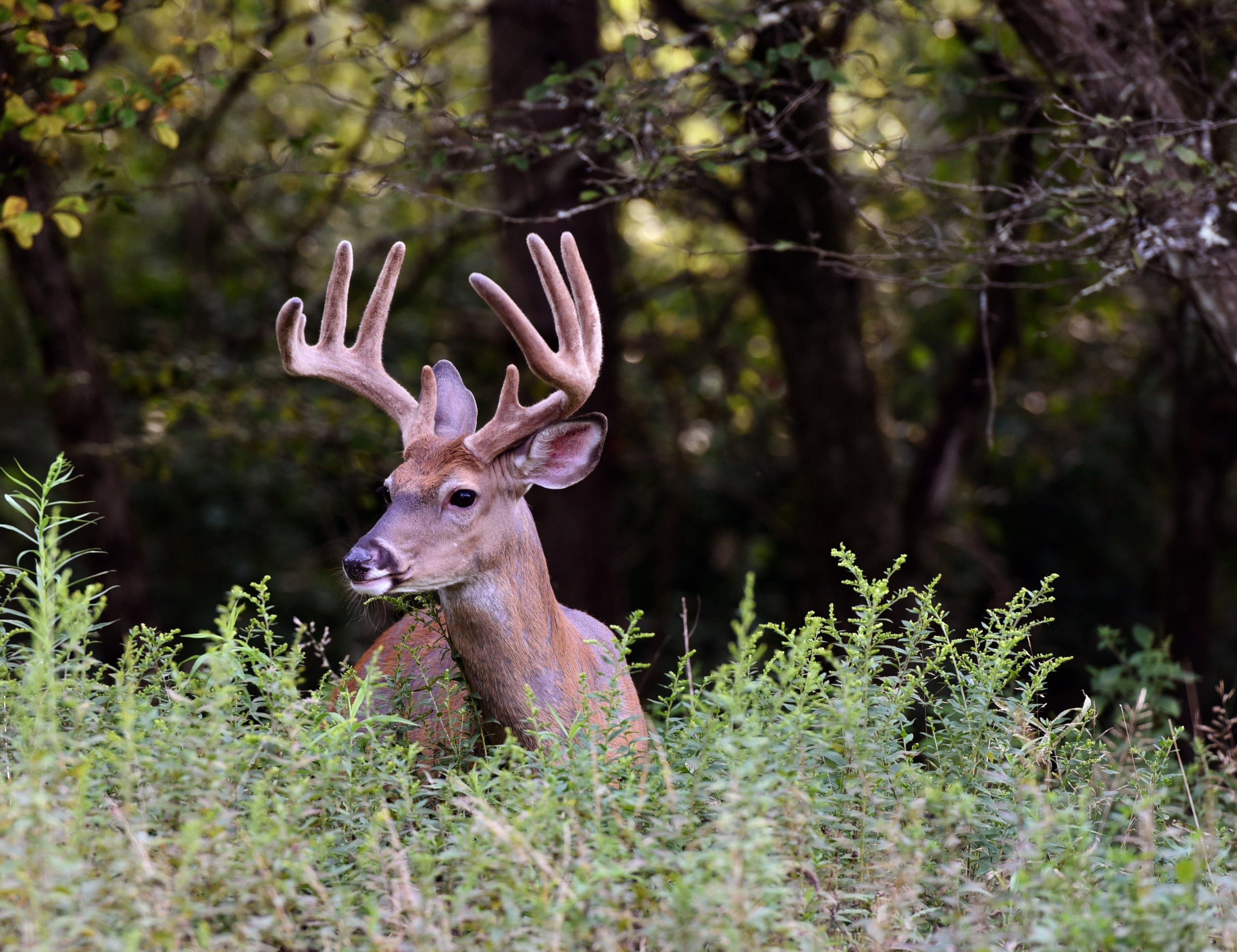
Mississippi deer hunters are allowed to hunt velvet bucks on private grounds and select state, federal, and open public lands during a special season with a special permit. (Photo by Ann Kosche)
The National Deer Association’s 2024 Annual Report suggests that Magnolia State deer hunters run a high success rate on bucks. It lists that 61 out of every 100 deer hunters took bucks in 2022. To be more specific, 119,105 bucks were taken in 2022. More impressively, it leads the U.S. with the highest percentage of bucks harvested that are 3 1/2 years old or older. An unfathomable 80 percent of bucks harvested in 2022 met that age threshold, and we all know that bucks exceeding 3 1/2 years old have the potential to grow large antlers.
DON’T MISS: 5 Ways to Increase Your Effective Bowhunting Range
To be properly licensed for Mississippi’s early archery hunt, you’ll need to obtain an All Game Hunting license for $300 or a 7-Day All Game Hunting License for $150. Next, you’ll need a Deer Permit for $100. Finally, you’ll need the Archery/Primitive Weapon/Crossbow Permit, which costs $75.
A Few More Things
Since temps are hot during early hunts, getting meat on ice is the top priority if you’re successful, so plan well in advance. Be sure to have a walk-in cooler or a quality, thick-walled cooler available that will keep the meat fresh for at least a few days (make sure to drain it often so the meat isn’t swimming in water) or until you can process it.
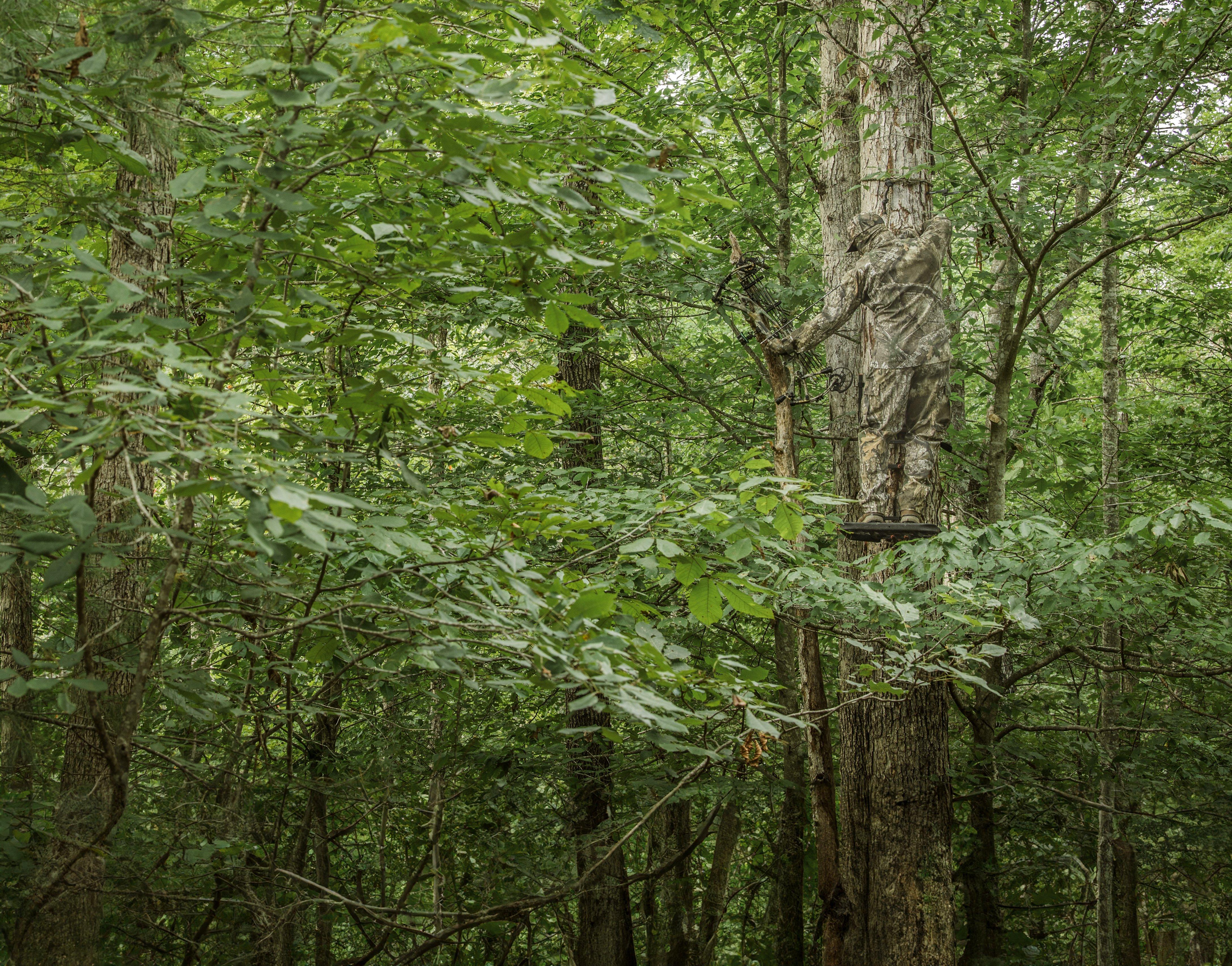
Early hunts can entail hot temperatures and mosquitoes, but those reasons are why there are fewer hunters in the woods than later on during October and November. (Photo by Bill Konway)
Also, have you considered what to do with the velvet antlers? If you do nothing, the velvet will likely rot and attract a swarm of flies, and there’s probably no saving the velvet once that happens. Velvet Antler Technologies offers a non-toxic spray that preserves the velvet. You simply spray the antlers, and the product will set and keep bugs away, yielding preserved velvet in 72 hours.
The ins and outs we’ve discussed here should get you started with planning your velvet-buck hunt. And, if you can withstand the bugs and heat, it can be a great time to collect a mature buck that’s on a predictable summer feeding pattern.

